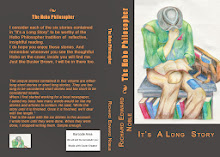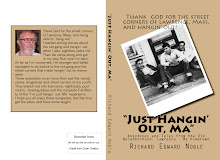
World War I to Iraq
Part II
A Theory on the Evolution of Today’s Liberal Politics
By Richard E. Noble
Next, if we accept the premise that World War I was primarily begun to promote industrialist and arms merchant’s gains and to undermine the socialist labor movements, other events being only supportive, secondary and manipulated, then we must ask; Was it successful?
As for advancing the industrialists and war industries, it was very successful, but there were a few minor glitches. The chief problem was that some of the industrialists of the losing countries lost money. This was not considered as fair play.
In May of 1930 a new international bank was set up. It was called the BIS, or Bank of International Settlements.(1) This was a part of the Young Plan. Young was a J. P. Morgan banker and political advisor. This bank would be immune from the perils of seizure, confiscation and the general monetary risks of war. It was founded on the principle that money is thicker than Nationalism. Why should an industrialist or banker lose his money simply because he is on the losing side of a particular war? It was originally set up to collect German reparation payments. It turned out to be a financial tool or money laundering apparatus for supporters of German Nazism. On its board of directors it had such notables as Walter Funk, eventually convicted as a war criminal; Emil Puhl, also convicted of war crimes; Kurt von Schroder, officer and financier of the Gestapo and head of J. H. Stein Bank of Cologne; Herman Schmitz, head of I .G. Farben; Hjalmar Horace Greeley Scacht, Hitler’s banking and financial wizard who was tried at Nuremberg, but released.
The BIS was associated with the First National Bank of New York, a J. P. Morgan organization with directors Harold S. Vanderbilt and Wendell Willkie. During the War the BIS president was a Harvard graduate by the name of Thomas McKittrick. He was a personal friend of Emil Puhl and ... “despite the fact that the evidence of the Puhl-McKittrick conspiracy was overwhelming, McKittrick was given an important post by the Rockefellers and Winthrop Aldrich; vice president of the Chase National Bank.”(2)
So, it seems, that the pro-war advocates and profiteers had a successful World War I in terms of profits and new ideas for profiting on future wars. But what of their goal to stamp out labor and socialistic labor ideas?
The war on this front went very poorly. Russia had been taken over by a pro-labor extreme radical government. There was a battle going on for China, and it looked like the anti-rich crowd was going to win there also. In Germany a Socialist post-war government had taken over temporarily. Socialist parties had been successfully established in England, France, Italy and all over Europe. As Karl Marx had predicted the Socialist revolution was on the march.
In the U.S., though, the extreme left wing had been trampled. The I.W.W, International Workers of the World, had been, not only put out of business, but their leadership imprisoned. Their major crimes had been, speaking out against the war and encouraging their members not to join the military and avoid the draft. Anarchists had been imprisoned or deported.(3) But less radical unions like the ClO and the AFL survived and continued to be a thorn in the side of business. American labor still seemed to have a “bad” attitude. They wanted a bigger share in the profits. Industrial war profits were extremely high but wages were nevertheless kept in check. They wanted safe work conditions. They wanted women and child workers protected. They wanted health insurance, disability and accident protection, retirement programs, shorter hours and the like.
The Unions were attempting to provide their workers with these benefits via union dues and company contracts. Employers didn’t like either of these options. If Unions were allowed to provide benefits to their workers via dues, the unions could become too powerful. The workers would become dependent on the Unions and not the employers. “More important than any of these factors in the decline of unionism after 1924 was the adoption by large portions of industry of “welfare capitalism”. Company unions were established that incorporated traditional union benefit offerings to re-establish Boss control and dominance over labor.(4)
The Bosses fought the Unions in every way they knew how, legal and otherwise. For the most part they had the government on their side. The best methods the Bosses had for combating Unions and worker’s rights advocates were company unions, immigration, unemployment, violence, sabotage of their own factories, lockouts starvation of workers, and anti-labor propaganda.(5)
The Bosses had been bringing in starving workers from all over the world, via false advertising and deceptive propaganda, since the 1840’s to keep wages at a starvation level. This tactic had been successful but it was backfiring. The immigrants were rapidly becoming their biggest opponents. The Bosses had lockouts and shut downs, Pinkertons, strike breakers, biased government legislation and contrived recessions and depressions. But the biggest blow of all was on the way ... the depression of 1929.
There are a lot of different theories about what caused this depression. I have my own.
John Maynard Keynes and others, talk about “disappearing money”. (6) It is claimed that “average people” put their money into savings accounts and somehow it just dried up and disappeared. I think somebody is trying to kid us here. Mister Keynes, I think knew the truth, but didn’t want to join the communists and attack his own kind and class - as was the case with Winston Churchill. So he made up this story of “disappearing” savings. He knew where the money had gone and he knew why. His suggestions regarding monetary policy helped the poor and assuaged the effects of the depression, but nevertheless succeeded in labeling himself along side Roosevelt as “enemies” of their class. The monied classes still hate and despise Keynes and Roosevelt to this day.
Money just doesn’t “dry up”, nor does it “disappear”. Whether money is spent or saved, it keeps going around. Beside this, at the time of the Depression over ninety percent of all the wealth of the world was controlled by less than 10% of the population. J. P. Morgan and a few of his associates are said to have had a net worth equal to two thirds of the entire U.S. Gross National Product of the day. (7) Even if all the 90% of the “average” world put all of their money into a sock or under the bed, it still couldn’t have caused a depression. So there was a good deal of money that went someplace. It was the money of the rich and the super wealthy that went someplace.
The stock market crash of 1929 and the Depression were precipitated by the very wealthy - maybe as a part of a conspiracy but most likely as the obvious course followed by like-minded people. Just as today free trade and the Global economy are being pursued without regard for individual national interests - so too the wealthy of the Depression era pursued their personal gains.
In his book the Great Crash 1929, John Kenneth Galbraith denies this “conspiracy notion”. I consider him extremely honest in his opinions. Yet many of the facts listed in his book 1929, could very well be considered supportive of my accusations nevertheless.
The Crash and following Depression solved two problems for the wealthy. One it provided the smart money with instant profits and removed all the amateurs from the “game”. And secondly, it provided all the bosses with a legitimate reason for putting all their bitchy workers into the streets and consequently into a better frame of mind. Now with unemployment booming, the workers and Unions could “rethink” their positions. Maybe after a little unemployment and starvation they would develop a better attitude and abandon their Socialistic agenda.
The poor and ignorant only understand harsh treatment. They should be kept poor, barefoot, pregnant - and in long lines begging for work. Bosses didn’t like being strong-armed into sharing their profits. Who were these “scum” demanding a “partnership” in their businesses? These peasants had to be shown their proper place.
As the Reverend Beecher (father of defiant Harriet) proclaimed from his pulpit after the Civil War in similar but not exact phrasing . . . Any upright man should be able to sustain himself and his family of five on one dollar a day wages. If he doesn’t drink, smoke or gamble it away, it should supply a good three meals of bread and water for all . . . (8) What more than bread and water does any good working man and his family need? The good Reverend Beecher also wondered why an employer should be forced to pay a worker a wage capable of supporting the worker’s wife and family also. The worker’s wife and family were being given their bread and water for free, in effect, while the burden of the worker’s sexual misadventures were being transferred to their poor employer.
The Reverend Beecher makes the good Reverend Malthus, of an earlier generation, seem kind and generous of spirit with his claims that it was the poor and their indiscriminate reproductive tendencies that were the true cause of world poverty and not the over indulgences, greed, selfishness, and exploitation by the wealthy that were the cause.
In any case, there is always another nation, with a more appreciative working class, waiting for the money of the rich to build it and bring it “prosperity”.
The wealthy and super wealthy began seeking countries that were more “inclined” towards the Capitalist, monopolistic ideology. Mussolini and Hitler and other dictators and imperialist were speaking their language. Hitler’s “Mein Kampf” reads like a campaign advertisement directed towards the rich and powerful. “Support me,” says Adolf, “and I will build a world where the rich will always be rich. I will kill all the Communists, discontents, and useless non producers”. These dictator types also believed in war and a strong military.
Hoover’s tax cuts and subsidies to large business were leaving the U.S. on ships for Europe in gold bars to the tune of 2 billion dollars a week. And in 1925 vast amounts went from the Federal Reserve under Benjamin Strong to the Reich Bank and the Bank of England under Hjalmar Schacht and Montagu Normand – both supporters and financiers to Adolf Hitler.(9) So much for the “trickle down” theory. And, as has already been established, war makes money - for some. Wars makes millions - for some. War makes billions. And it encourages business investment with no bottom line and apparently no top line. It produces industries that are self perpetuating. They manufacture products that are exploded and destroyed. This, of course, creates an immediate demand. As long as there is war there is always a need for these industries to supply their products. These industries always need workers. The war machine industry is self-perpetuating and never ending. There is only one problem. They must be careful not to blow up everybody all at once. This would be bad for business.
So the smart money was transferred into these new areas of investment, while the “fat and sassy” workers of the world were left to stew in their own communist and socialist ideologies.
Adolf Hitler was an exceptionally good investment because not only did he advocate war but he hated communism and labor unions and considered it the destiny of his people to resettle Russia and all territories to the east of Germany. This was perfect. Adolf Hitler became the poster boy for the Aristocratic set all over the world. He would destroy this Bolshevism. He would conquer Russia. And, if that wasn’t enough for your money, he would get rid of the International Jew.
The “International Jew” was a book written, published and financed by none other than Henry Ford.(10) The historian William Manchester says that Hitler kept a supply of this book to hand out to his wealthy friends. And Adolf had many? Anybody who was anybody seemed to have investments of one nature or another in Germany. The list of Adolf’s and Nazism backers and supporters actually staggers one’s wildest imaginings. Let me mention a few:
Henry Ford, Thomas Edison, Charles Lindbergh; all three of these men were known anti-Semites.(11) Edison, Ford’s former employer, is said to have been Henry’s mentor and inspiration in this area as well as others. Lindbergh helped to train Goring’s air force. He and Henry Ford both received the German Cross for their efforts in support of the Nazi cause. Both refused to return their medals after war with Germany was declared. F.D.R. refused to reinstate Lindbergh in the U.S. military and is quoted to have said something to the effect that ... if Lindbergh isn’t a Nazi, nobody is. Adolf Hitler is quoted to have said . . . We look to Heinrick Ford as the leader of the growing Fascist movement in America.
Other supporters of Adolf s Nazism include(12): Chase National Banking, Standard Oil of New Jersey, Sterling Products, General Aniline and Film - these are all Rockefeller companies; ITT owner, Sosthenes Behn; R.C.A. corporation, headed by Colonel David Sarnoff James D. Mooney, president of Chevrolet Motor Company; Edsel Ford: Montagu Normand, governor of the bank of England, [Before the German armies had arrived in Czechoslovakia, the Czech government had shipped all of its gold to the Bank of England for safe keeping. Mister Montagu Normand returned the gold via the BIS to Adolf Hitler and the Germans.], Neville Chamberlain, Prime Minister of England, was a major shareholder in Imperial Chemical Industries, a partner of I. G. Farben. The BIS, as mentioned, a Nazi money laundering machine is also the supposed forerunner of the World Bank; Allen and brother John Foster Dulles, head of the C.I.A. and Secretary of State respectively, both worked for Sullivan and Cromwell. This was a law firm that handled the American interests of I. G. Farben and several other German companies; Nancy Aster and the “Cliveden Set”... the Cliveden Set was a super wealthy, international group of Nazi supporters; Lord Beaverbrook, owner of the Daily Express, the Sunday Express, and the Evening Standard and Lord Rothermere were wealthy newspaper magnates who favored Nazism; King Edward the VIII and his American, divorcee bride were both suspected as spies for Hitler. The Kings abdication was not due to love alone, supposedly he was asked to step down by members of the English parliament; the DuPont family of Delaware, owners of the controlling interests of General Motors, were Hitler supporters and though Jewish themselves, anti-Semites. They were also involved with I. G. Farben, founded The Liberty League, and Clark’s Crusaders, both of which were radical Fascists organizations. The DuPonts and General Motors, along with J. P. Morgan Banking actually planned a violent overthrow of the Roosevelt Government.
Roosevelt had his hands full in trying to win World War II for the allies. He was truly a traitor to his class - the only problem was that his class, the American super-wealthy, upper class, were strongly fascist and traitors to what many working Americans had always thought to be the principles of American democracy.
Roosevelt was one of the super wealthy. But, his feelings were in sympathy with the working class. He was considered a Socialist by many. He stabbed the Bosses in the back by taking their tax money and giving it to the poor. He put the poor back to work using the money of the people who were trying to keep the poor unemployed. The wealthy considered Roosevelt a traitor. But, though they didn’t get rid of Socialism they did get a War. They wanted Hitler to fight the war with Russia for them, but when that failed, they would have to make the best of it.
World War II kept the workers and the radicals busy and kept the profits high for the warrior class and their pro-war cohorts. Roosevelt had two wars to contend with. He had the war overseas, and the one here at home with the right wing, anti-Socialists, pro-Nazis.
F.D.R. had the common people, the workers and the soldiers on his side, but many of the “monied” people of America were another story. Some of them were German or Nazi supporters. Some of them were anti-Semites. And others were simply greedy, enterprising capitalists. That a very small minority were religious, conscientious objectors and pacifists would be my guess.
Henry Morganthau, Secretary of the Treasury and the next door neighbor of F.D.R., was keeping records of American businesses that may have or were known to have been trading with Nazi Germany during the war. After the war there was going to be a serious investigation of U.S. war profiteering just as there was after World War I. One of his assistants in tabulating this information was Alger Hiss.
Alger Hiss had been on the Nye committee investigating war profiteering. It was to cover up these war profiteers, anti-Semites, Nazi sympathizers, and business criminal traitors in general that brought Senator McCarthy to the foreground. McCarthy kept the heat on Communism and thus kept the heat off our own, home grown Nazis and true traitors.
I have recently read that J. Edgar Hoover has had FBI agents go to the Morganthau files in the F.D.R. museum and distort and damage these files, by literally snipping out sections that were incriminating to his right wing supporters. (13)
1 “Hitler’s Secret Bankers”, Adam Lebor, Carol Publishing Group.
2 "Trading With the Enemy”, by Charles Higham, Barnes & Noble.
3 “Fighting Faiths”, the Supreme Court and Free Speech, Richard Polenberg.
4 “A History of American Labor”, by Joseph G. Rayback, The Free Press, New York.
5 "Problems in American History", Carroll Daugherty, pages 635-680.
6 “The Worldly Philosophers” by Robert L. Heilbroner, Simon & Schuster, pp. 254-259.
7 “History of Great American Fortunes” by Gustavus Myers, The Modern Library, New York.
8 “The Rise of Industrial America” Volume Six, by Page Smith, McGraw-Hill Book Company.
9 “Money”, Whence it came, Where it went, pp 214-215, by John Kenneth Galbraith.
10 “The International Jew” Abridged from the original as published by Henry Ford, Sr., Copy prepared for printer by Gerald L. K. Smith, National Director, Christian Nationalist Crusade.
11 “Who Financed Hitler” The Secret Funding of Hitler’s Rise to Power 1919-1933, James Pool, Pocket Books, a division of Simon & Schuster.
12 “Hitler and His Secret Partners” by James Pool, Pocket Books, Simon & Schuster.
13 “J. Edgar Hoover”, The Man and His Secrets, by Curt Gentry, W. W. Norton & Company, pp. 389-390.
[This has been Part II of a three Part series. Part III will be appearing shortly.]






































